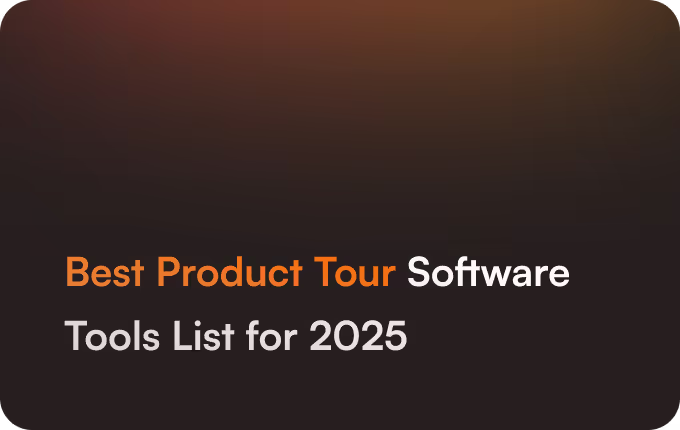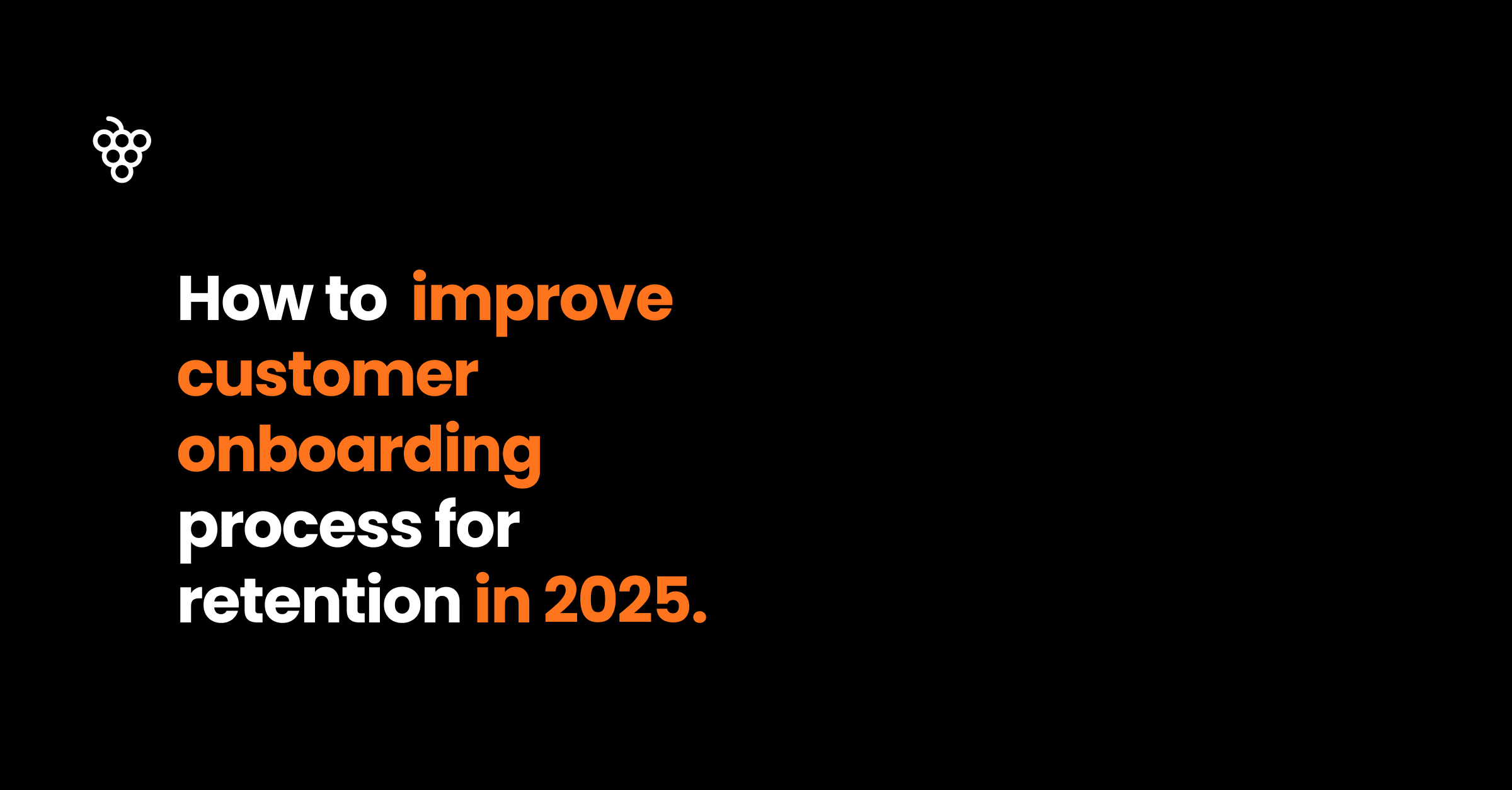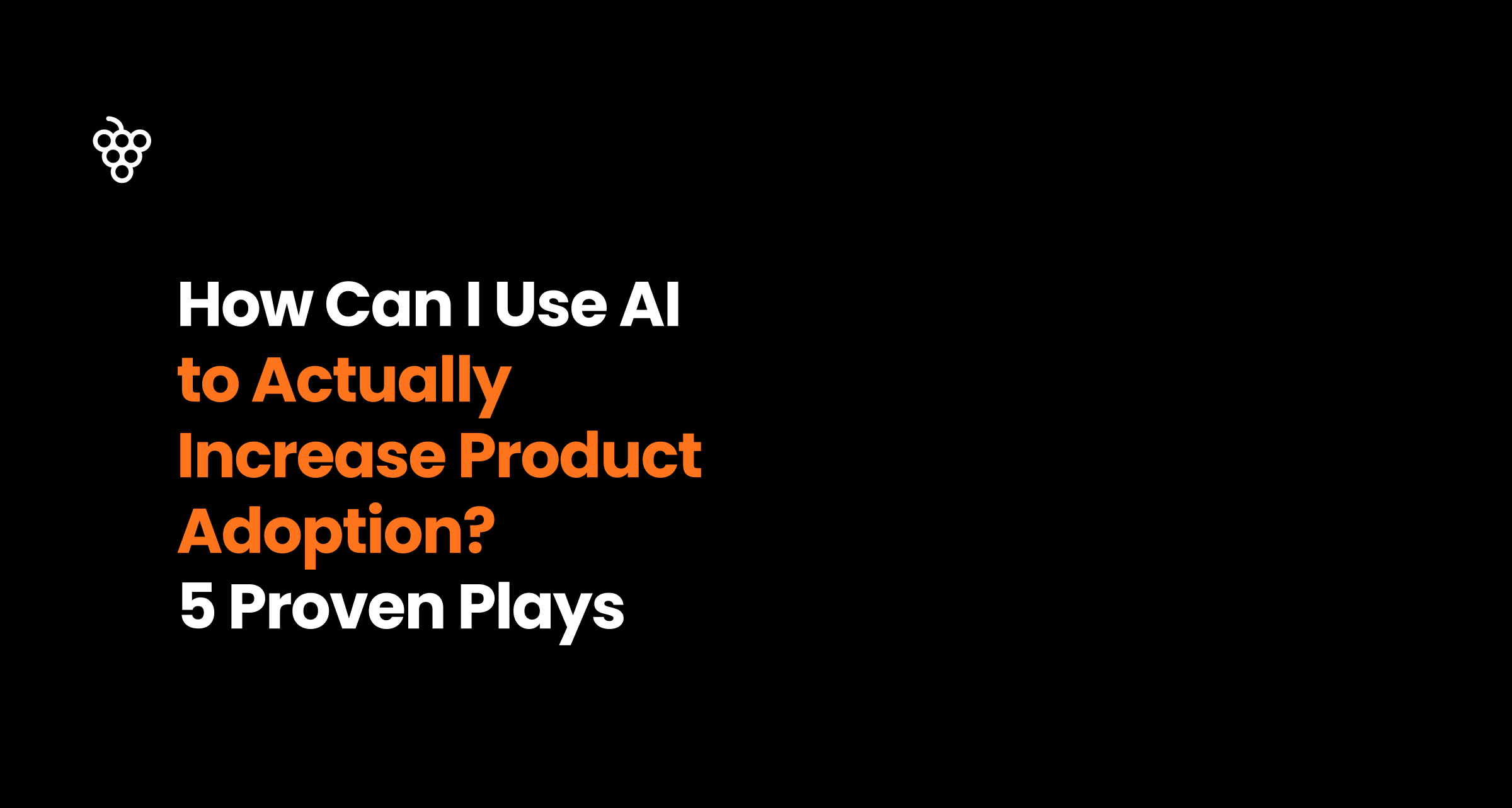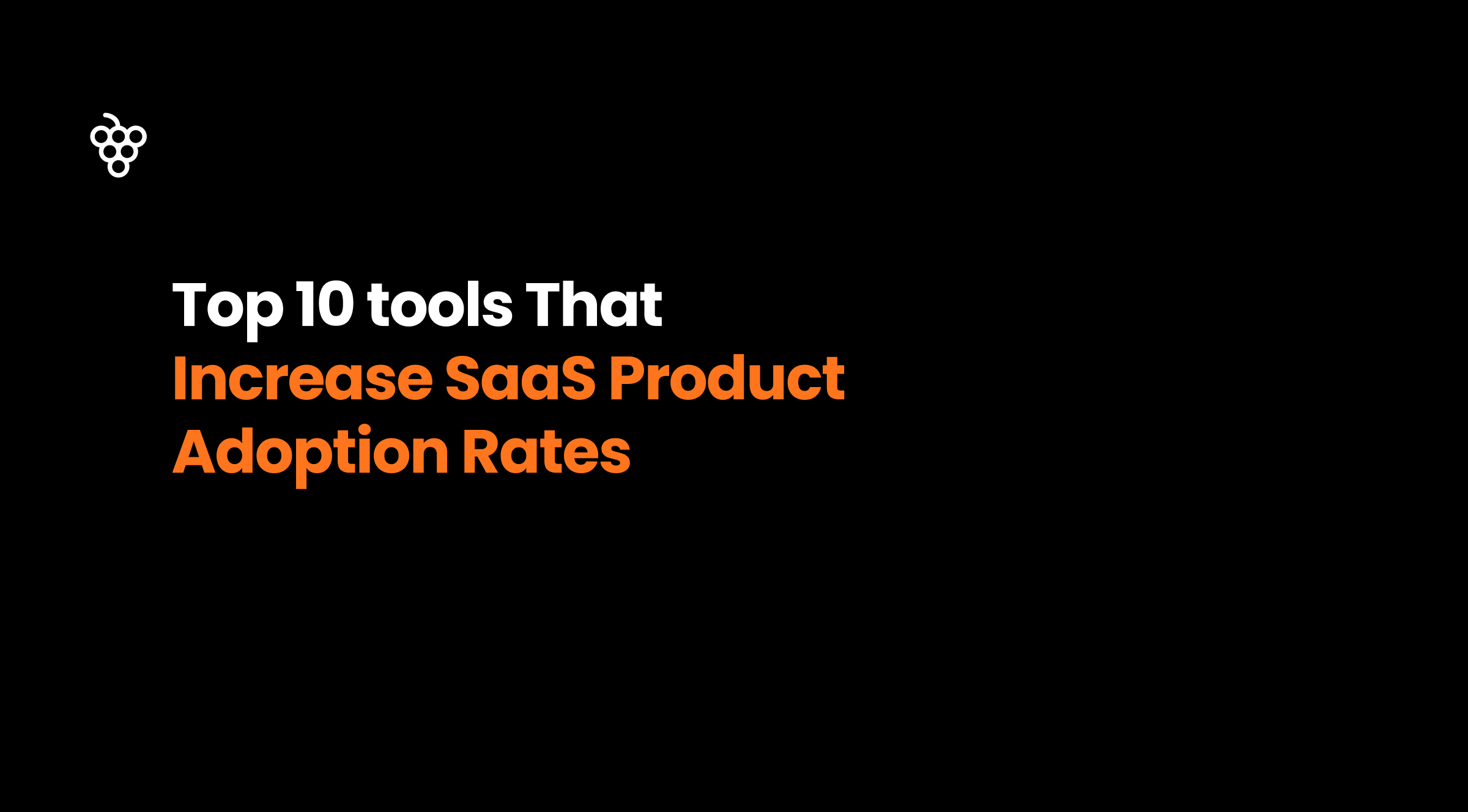
AI Agent Solutions for Product Adoption: Your Options and What to Consider


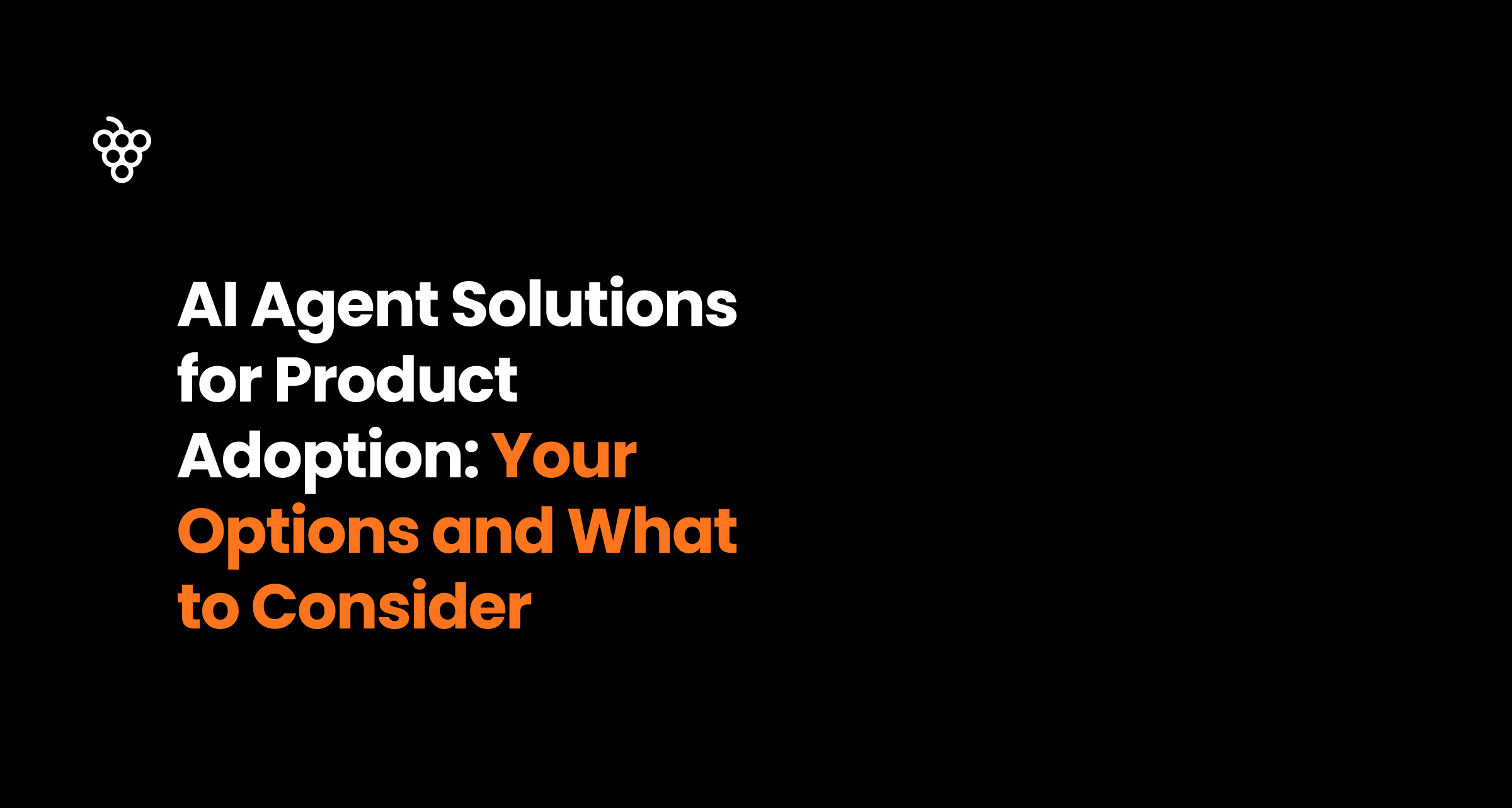
AI agent solutions for product adoption fall into three main categories: ready-to-use platforms like Product Fruits' Elvin AI, custom-built agents requiring development resources, and hybrid approaches combining existing tools with AI APIs. Ready-to-use platforms deliver results fastest, typically within days of implementation. Product Fruits' Elvin AI automatically generates personalized onboarding and provides conversational support, achieving 64% activation rates without custom development.
Choosing the right AI agent solution determines whether implementation takes weeks or months, whether results appear immediately or eventually, and whether costs run into thousands or hundreds of thousands.
What Are AI Agent Solutions?
AI agent solutions are software systems that use artificial intelligence to guide users through products, answer questions, and help people reach success faster. These agents operate autonomously, making decisions about what guidance to provide based on user context and behavior.
In the context of product adoption, AI agents handle tasks that traditionally required human intervention or manual configuration. They personalize onboarding flows, provide instant support, and adapt to user needs in real-time.
Core AI agent capabilities include:
- Natural language understanding for user questions
- Personalization based on user attributes and behavior
- Autonomous decision-making about when and how to intervene
- Learning from interactions to improve over time
- Operating at scale without proportional resource increases
Different solutions implement these capabilities in different ways. Some focus on conversational support. Others emphasize guided onboarding. The most comprehensive solutions handle both.
What are The Three Main Categories of AI Agent Solutions
Platform-Based AI Agents
Platform-based solutions provide ready-to-use AI agents specifically designed for product adoption. Teams implement these agents through configuration rather than development. Product Fruits exemplifies this category with Elvin AI for personalized onboarding and Elvin Copilot for conversational support.
Key characteristics:
- Pre-trained AI models ready to use immediately
- Visual configuration instead of coding
- Integration with existing products via snippet installation
- Built-in analytics and optimization
- Ongoing platform improvements benefit all customers
Implementation timeline: Days to weeks depending on product complexity.
Cost structure: Monthly or annual subscription fees. Typically $500-$2,000 monthly for mid-market companies.
Best for: Teams that need AI agent capabilities quickly without building custom infrastructure. Companies focused on business outcomes rather than AI development.
Custom-Built AI Agents
Custom-built solutions involve developing AI agents from scratch or heavily customizing open-source frameworks. Engineering teams build agents tailored to specific product needs and workflows.
Key characteristics:
- Complete control over agent behavior and capabilities
- Integration depth limited only by development resources
- Proprietary AI models trained on specific data
- Ongoing maintenance and improvement required
- Full ownership of technology stack
Implementation timeline: Months to years depending on scope and team size.
Cost structure: Engineering salaries, infrastructure costs, AI expertise. Typically $200,000+ annually for a small dedicated team.
Best for: Large enterprises with specific requirements that off-the-shelf solutions can't meet. Companies with extensive AI engineering resources already.
Hybrid Approaches
Hybrid solutions combine existing onboarding tools with AI APIs from providers like OpenAI, Anthropic, or Google. Teams build custom integrations between their products, adoption tools, and AI services.
Key characteristics:
- Flexibility to choose specific AI capabilities
- Integration work required but less than full custom build
- Ongoing API costs based on usage
- Some control over agent behavior through prompts
- Dependent on multiple vendors
Implementation timeline: Weeks to months depending on integration complexity.
Cost structure: API usage fees plus development time. Variable costs based on interaction volume.
Best for: Companies with development resources who want more customization than platforms offer but less commitment than full custom builds.

How should you decide which AI Agent Solution to use for your product adoption?
1. Time to Value
How quickly do results need to materialize? Platform solutions deliver value within weeks. Custom builds take months before showing impact. Hybrid approaches fall somewhere between.
Product Fruits customers typically see adoption improvements within the first month of implementation. Keboola accelerated onboarding by 29% shortly after launch - even with traditional pre-AI approaches. Custom builds require significantly more time before similar results appear.
Questions to consider:
- How urgent is the product adoption problem?
- Can the team afford months of development before seeing results?
- Are there immediate competitive pressures requiring fast action?
2. Required AI Capabilities
Different AI agent solutions excel at different capabilities. Clarify which capabilities matter most for your specific adoption challenges.
Personalized guidance generation creates custom onboarding flows for different user types. Product Fruits' Elvin AI generates these automatically based on user attributes. Custom builds can create even more specific personalization but require significant development.
Conversational support answers user questions through natural language interaction. Platform solutions like Elvin Copilot provide this immediately. Building equivalent functionality from scratch requires natural language processing expertise.
Behavioral adaptation adjusts agent behavior based on how users interact with the product. This requires sophisticated tracking and decision logic. Platforms include this capability built-in. Custom solutions must develop it explicitly.
Analytics and optimization track agent performance and improve over time. Platforms provide adoption metrics automatically. Custom builds must implement analytics infrastructure separately.
3. Technical Resources Available
Implementation complexity varies dramatically across solution types. Assess realistically what your team can handle.
Platform solutions require:
- Ability to install JavaScript snippet
- Product manager or marketer who can configure settings
- Basic understanding of user segmentation
- No ongoing engineering support for normal operation
Custom builds require:
- Machine learning engineers or data scientists
- Backend developers for integration work
- Frontend developers for user interface
- DevOps for infrastructure management
- Ongoing engineering time for maintenance and improvements
Hybrid approaches require:
- Full-stack developers for integration work
- Understanding of API integrations
- Prompt engineering for AI behavior
- Ongoing development for updates and improvements
Most teams lack the resources for custom AI development. The specialized expertise required costs significantly more than platform subscriptions.
4. Budget Considerations
Total cost of ownership extends beyond initial licensing or development costs.
Platform costs include:
- Monthly or annual subscription fees
- Implementation support (often included)
- Minimal ongoing technical maintenance
- Predictable, scalable pricing
Custom build costs include:
- Engineering salaries for initial development
- Infrastructure and hosting fees
- AI training and data preparation costs
- Ongoing maintenance and improvement
- Unpredictable scaling costs
Hybrid approach costs include:
- API usage fees (variable based on volume)
- Development time for initial integration
- Ongoing integration maintenance
- Multiple vendor relationships to manage
Calculate cost per activated user rather than raw expenditure. A platform that costs $1,000 monthly but activates 500 additional users costs $2 per activation. A custom build that costs $20,000 monthly in engineering time but activates 1,000 additional users costs $20 per activation.
5. Data Privacy and Security
AI agents access user data and product information. Different solutions handle this data differently.
Platform solutions typically process data on their infrastructure. Reputable platforms like Product Fruits maintain SOC 2, ISO 27001, and GDPR compliance. Data gets encrypted in transit and at rest. Most enterprises find this acceptable.
Custom builds keep all data internal. This provides maximum control but requires implementing security measures internally. Custom builds make sense when regulatory requirements prohibit external data processing.
Hybrid approaches send data to AI API providers. These providers process data according to their terms. Read API provider terms carefully, especially regarding data retention and model training.
6. Personalization Depth
How much personalization do users need? The answer affects which solution works best.
Basic personalization means different onboarding for different roles or industries. Platform solutions handle this easily. Product Fruits' AI generates personalized flows based on standard user attributes automatically.
Advanced personalization means unique onboarding for individual users based on complex behavioral patterns. This requires more sophisticated AI. Custom builds can achieve this but at significant cost. Most products don't actually need this level of personalization.
Real-time adaptation means changing guidance based on what users do moment to moment. Product Fruits includes this capability through behavioral triggers. Custom builds can implement even more nuanced adaptation.
Most teams overestimate personalization needs. Basic personalization that accounts for role, industry, and experience level handles 90% of situations effectively.
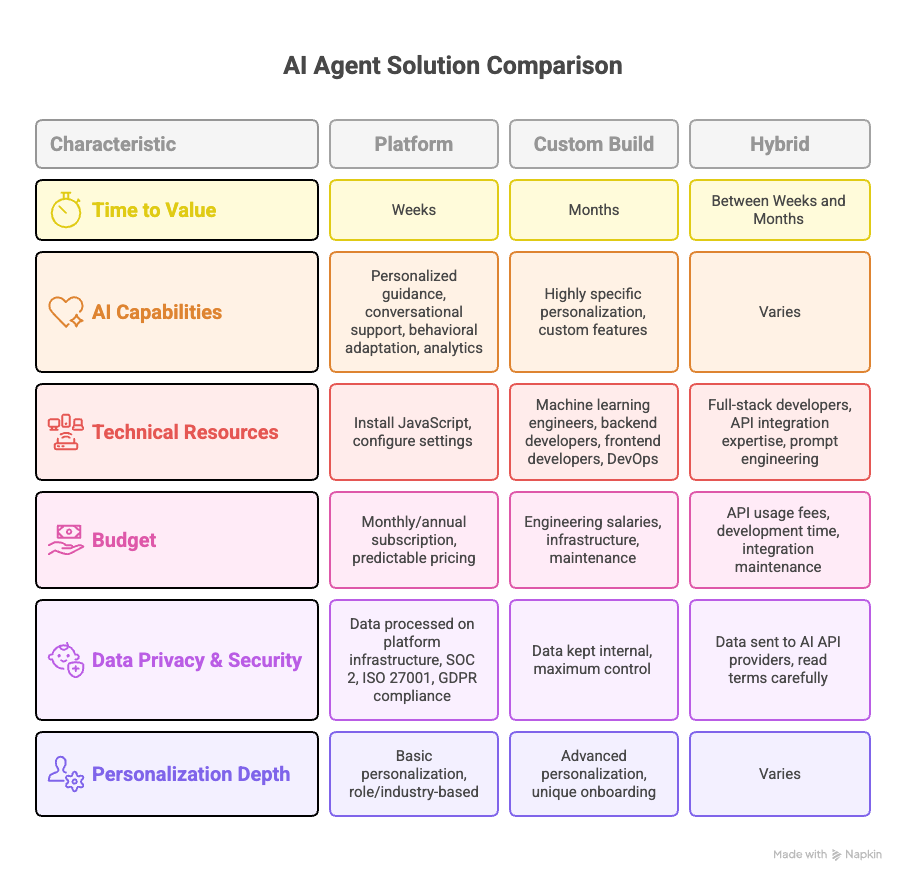
What are the top AI Agent Solutions you can use to increase product adoption?
1. Product Fruits (Platform)
Product Fruits provides Elvin AI for automated onboarding generation and Elvin Copilot for conversational support. The platform handles both guided and self-service adoption patterns. I can work using Knowledge Base (or other sources) or through "Annotations", which allow AI to "self-learn" the entire product.
Strengths:
- Fast implementation (typically under two weeks)
- No engineering resources required for ongoing operation
- AI generates personalized flows automatically
- Proven results (64% average activation rate)
- Includes analytics, surveys, announcements, and checklists
- Onboarding checklists work alongside AI guidance
Considerations:
- Less customization than custom builds
- Operates within platform capabilities
- Requires snippet installation on product
Pricing: Starts at $96 monthly for full platform with AI features.
Best for: SaaS companies that need AI adoption capabilities immediately without custom development.
2. ChatGPT API + Custom Integration (Hybrid)
Teams can build custom AI agents using OpenAI's ChatGPT API integrated with existing onboarding tools. This requires development work but provides flexibility.
Strengths:
- Access to powerful language models
- Flexibility in implementation
- Can combine with existing tools
- Control over prompts and behavior
Considerations:
- Requires ongoing development resources
- API costs scale with usage
- No built-in adoption-specific features
- Must build analytics and tracking separately
- Responsible for maintaining integrations
Pricing: API costs plus development time. Variable based on interaction volume.
Best for: Companies with development resources who want specific conversational capabilities.
3. Custom AI Development
Building proprietary AI agents from scratch provides maximum control and customization. This path requires substantial resources and expertise.
Strengths:
- Complete control over functionality
- Customized exactly to product needs
- No vendor dependencies
- Intellectual property ownership
Considerations:
- Requires specialized AI talent
- Months to years of development time
- Significant ongoing costs
- Must maintain infrastructure independently
- Results uncertain until after substantial investment
Pricing: $200,000+ annually in engineering costs.
Best for: Large enterprises with unique requirements and extensive engineering resources.
4. Pendo Guides + AI Extensions (Hybrid)
Pendo provides product analytics and onboarding tools. Some teams extend Pendo with AI capabilities through custom development or third-party integrations.
Strengths:
- Combines analytics with adoption tools
- Established platform with enterprise features
- Can add AI capabilities as needed
Considerations:
- AI capabilities require custom work
- No native AI agent functionality
- Complex platform with learning curve
- Enterprise pricing
Pricing: Custom enterprise pricing starting above $20,000 annually.
Best for: Enterprises already using Pendo who want to add AI capabilities.
What are some Implementation Considerations to keep in mind when using AI for product adoption?
1. Knowledge Base Requirements
AI agents need information to provide helpful guidance. The quality and organization of that information directly impacts agent effectiveness.
Platform solutions like Product Fruits can work with existing documentation. Teams connect knowledge bases, help articles, and internal wikis. The AI learns from available information and provides answers based on it.
Custom builds require structured data preparation. Engineering teams must organize information in formats the AI can process effectively. This preparation work adds significant time to implementation.
Best practices for any solution:
- Organize documentation logically with clear categories
- Write in plain language that users understand
- Keep information current as products change
- Include examples and screenshots where helpful
- Test documentation with actual users
Better organized information leads to better AI agent performance regardless of which solution type you choose.
2. User Segmentation Strategy
AI agents personalize based on user attributes. Defining those attributes upfront improves results.
Common segmentation attributes:
- Role or job title
- Industry or vertical
- Company size
- Experience level with similar products
- Specific use cases or goals
- Geographic location or language
Product Fruits uses these attributes to generate appropriate onboarding automatically. Custom builds must explicitly program how each attribute affects agent behavior.
Collect relevant attributes during signup. The data you gather determines how well AI can personalize. Don't ask for unnecessary information, but do capture details that genuinely affect what users need to learn.
3. Integration Architecture
AI agents must connect to products and existing tools. Integration architecture varies by solution type.
Platform integrations typically work through:
- JavaScript snippet installation (one-time setup)
- API connections to analytics platforms
- Webhooks for real-time events
- Pre-built connectors to common tools
Product Fruits integrates with Segment, HubSpot, Intercom, Salesforce, and other major platforms. Most integrations configure through the interface without coding. See how it works for technical details.
Custom build integrations require:
- Database access for user information
- Event streaming for behavioral tracking
- API development for agent interactions
- Frontend components for user interface
Custom integrations provide more depth but require significantly more development time.
4. Success Metrics Definition
Define success metrics before implementing any AI agent solution. Clear metrics show whether the investment pays off.
Adoption metrics:
- Activation rate (percentage reaching first value)
- Time to first value
- Feature adoption rates across user segments
- User retention at key intervals
- Product usage depth
AI-specific metrics:
- Percentage of users engaging with AI guidance
- Completion rates for AI-generated tours
- Question resolution rate for AI support
- User satisfaction with AI interactions
Business impact metrics:
- Support ticket volume changes
- Sales cycle length
- Customer lifetime value
- Expansion revenue from deeper usage
Platform solutions like Product Fruits track these metrics automatically. Custom builds must implement measurement infrastructure separately.

What are some Real-World AI Agent Implementations for product adoption?
SaaS Platform Onboarding
A project management company evaluated AI agent options for improving new user activation. They considered custom development but lacked AI engineering expertise. Building internally would take six months minimum.
They chose Product Fruits for immediate implementation. Elvin AI generated personalized onboarding for different user roles automatically. Setup took two weeks including integration and content preparation.
Result: Activation rate increased from 28% to 54% within two months. The platform paid for itself through reduced churn in the first quarter.
Enterprise Internal Tools
A large corporation wanted AI agents for internal software adoption across thousands of employees. They had strict data privacy requirements and substantial engineering resources.
They built a custom AI agent system that kept all data internal. Development took 14 months with a team of six engineers. The system provided highly customized guidance specific to different departments and workflows.
Result: Employee adoption of internal tools improved by 40%. The custom approach made sense given regulatory constraints and available resources.
Mid-Market SaaS Support
A CRM platform wanted to reduce support costs through AI-powered question answering. They evaluated building with ChatGPT API versus using a complete platform.
Initial estimates showed API costs would exceed platform pricing at their usage volume. The hybrid approach also required frontend development and integration work their team lacked capacity for.
They implemented Product Fruits' Elvin Copilot for instant question answering from existing documentation. Implementation took one week.
Result: Support tickets decreased by 30%. The AI handles common questions while human support focuses on complex issues.
What are some Mistakes to avoid when implementing AI agents for increasing product adoption?
Overestimating internal capabilities. Teams underestimate the complexity of building effective AI agents. Natural language processing, personalization logic, and behavioral tracking require specialized expertise. Most teams lack this expertise and should use platforms instead.
Underestimating data preparation needs. AI agents need clean, well-organized information. Teams that skip data preparation see poor results regardless of which solution they choose. Invest in documentation quality before implementing any AI agent.
Focusing on technology instead of outcomes. The goal is better product adoption, not impressive AI technology. Choose solutions based on business results, not technical sophistication. Simple platform solutions that work beat complex custom builds that don't.
Ignoring user experience. AI agents should help users, not overwhelm them. Some implementations create too much guidance too frequently. Test AI agent behavior with actual users before rolling out broadly.
Setting unrealistic timelines. Custom AI development takes significantly longer than teams expect. Platform implementations are fast but still require thoughtful configuration. Allow adequate time for proper implementation regardless of solution type.
How should you use AI to increase product adoption?
Evaluate options based on your specific situation:
Choose platform solutions if:
- You need results within weeks, not months
- Engineering resources are limited
- Standard personalization meets your needs
- Budget constrains custom development
- Focus needs to stay on core product
Choose custom builds if:
- You have specialized requirements platforms can't meet
- Substantial AI engineering resources are available
- Regulatory constraints require complete data control
- Budget supports $200,000+ annual investment
- Timeline allows 6-12 months before results
Choose hybrid approaches if:
- You want more flexibility than platforms provide
- Development resources exist for integration work
- Usage volume makes API costs reasonable
- Specific AI capabilities matter more than complete solutions
Most teams should start with platforms. The speed to value, predictable costs, and immediate results make platforms the practical choice. Custom development makes sense only for companies with specific requirements that justify the investment.
Explore different implementation approaches through use cases showing how companies across industries tackle adoption challenges. Compare platform approaches with tools that increase adoption rates or learn about AI implementation steps.
Ready to implement AI agent solutions for product adoption? Use Product Fruits and let Elvin AI personalize onboarding for every user automatically. See how AI-driven agents work or compare no-code options.







